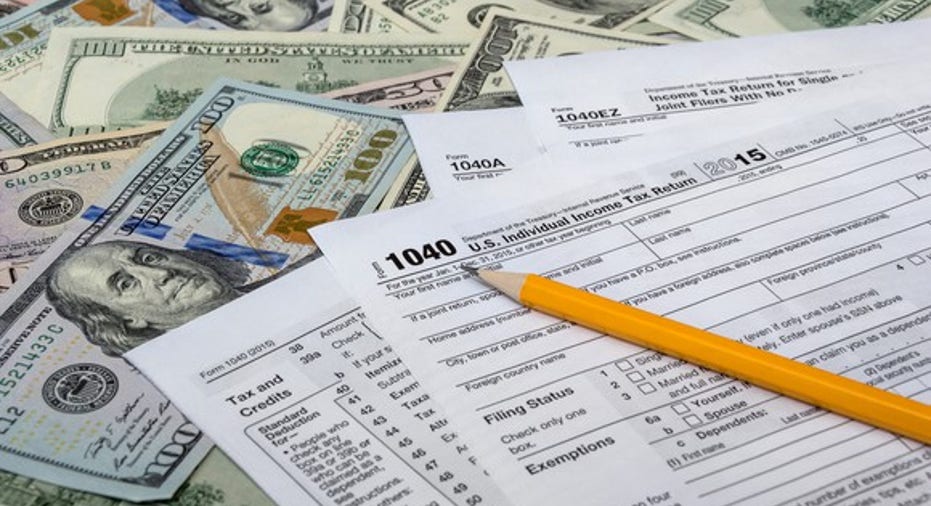Tax Refund Delays: Will You Have to Wait Longer to Get Your Money?

Tax season begins on Jan. 23, and many taxpayers who expect to get big refunds from the IRS this year will work hard to file as quickly as possible. But for millions of low-income taxpayers who take advantage of two key tax credits to cut their tax bills and boost the amount they get back from the federal government, tax refund delays will prevent them from getting their hard-earned money back from the IRS until mid-February at the earliest.
Image source: Getty Images.
How lawmakers delayed your tax refund
The blame for why many taxpayers will have to wait for their refunds goes to the Protecting Americans from Tax Hikes Act, or PATH for short. Congress passed the PATH Act in late 2015, and the intent of the law was to make it easier for the IRS to detect potential tax fraud from identity thieves and other criminals seeking to steal tax refunds.
One key provision of the PATH Act states that the government must not pay refunds to taxpayers before Feb. 15 if they claim either the Earned Income Tax Credit or the Additional Child Tax Credit on their return. With the change having taken effect on Jan. 1, this year's filing season will be the first in which the new law applies.
The reason why lawmakers targeted these two credits is largely because of the fact that they are both refundable tax credits. Unlike most credits, even taxpayers who don't have any tax liability can still collect refunds based on amounts from refundable credits. That's one of the elements that made them a target for fraud.
Who will be affected by the delay?
Unfortunately, those two tax credits are also among the most popular. More than 28 million taxpayers claimed the Earned Income Tax Credit in the most recent year for which IRS data are available, and another 20 million claimed the Additional Child Tax Credit.
The Earned Income Tax Credit is aimed primarily at low- and middle-income families with children. Those with one child can claim credits that top out at more than $3,300, while two-child families have a maximum credit of more than $5,500, and those with three or more could get in excess of $6,250. Income limits apply, but smaller credits are available for families with adjusted gross incomes as high as $53,500 in some cases.
Meanwhile, the Additional Child Tax Credit applies to anyone who qualifies for the regular Child Tax Credit and has earned income of at least $3,000. The provision essentially extends the benefit of the $1,000 per child credit to those who don't have enough tax liability to use the full credit amount, making the unused portion of the credit refundable. Income limits apply, but the Additional Child Tax Credit is aimed primarily at low-income taxpayers who already have minimal tax liability even before applying the credit.
What the IRS is saying about tax refund delays
Even worse, the IRS has told taxpayers that they can't even get a portion of their refund back before the Feb. 15 date in the PATH Act. The law doesn't allow the IRS to release any part of a refund, even if some of the refund comes from provisions other than the Earned Income Tax Credit or Additional Child Tax Credit.
You're still free to file as you normally do, and the IRS urged preparers to submit returns in a timely fashion as usual. That will allow the IRS to process the return normally, making the last hurdle for a refund the PATH Act's Feb. 15 restriction.
No one likes waiting to get their money back, and the PATH Act's delay of tax refunds will be a major headache for millions of taxpayers this tax season. Even though fighting tax fraud is a laudable goal, it's unfortunate that it has to come at the cost of tax refund delays for those who can least afford to wait.
The $15,834 Social Security bonus most retirees completely overlook If you're like most Americans, you're a few years (or more) behind on your retirement savings. But a handful of little-known "Social Security secrets" could help ensure a boost in your retirement income. For example: one easy trick could pay you as much as $15,834 more... each year! Once you learn how to maximize your Social Security benefits, we think you could retire confidently with the peace of mind we're all after.Simply click here to discover how to learn more about these strategies.
The Motley Fool has a disclosure policy.



















